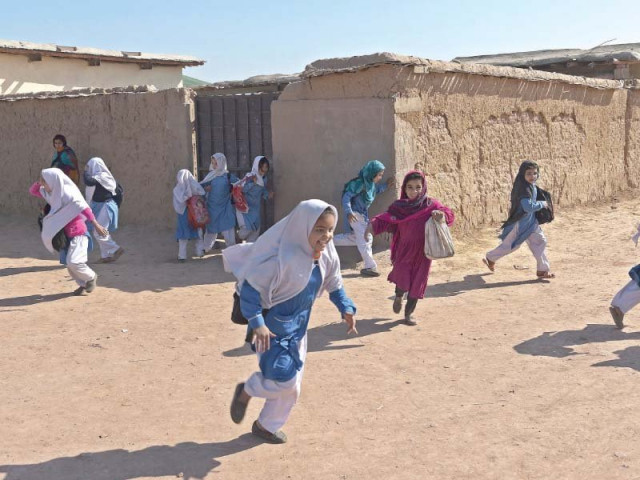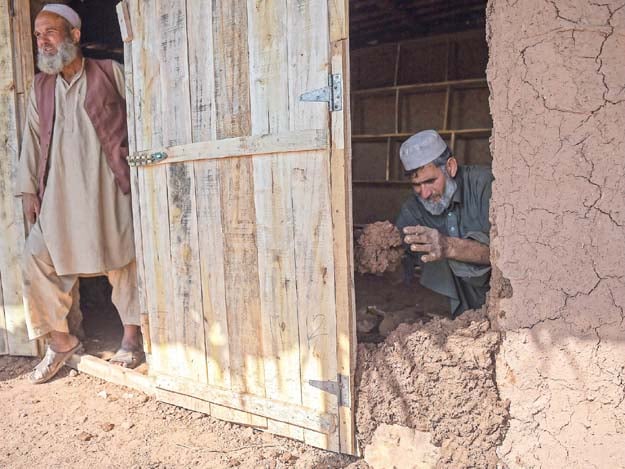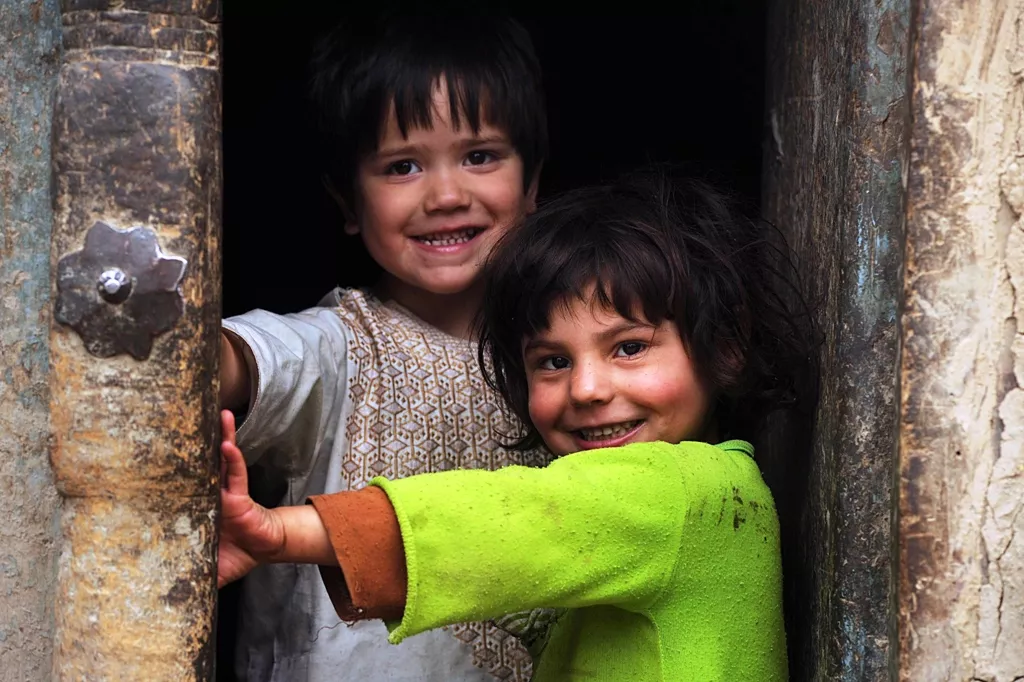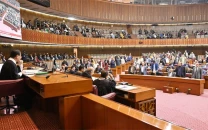For many Afghan refugees ‘home’ is an unfamiliar land
Many running successful businesses in Islamabad say conditions in Afghanistan are bleak

Children rush out of school. PHOTO: REUTERS
It would be like becoming an "immigrant" all over again, as most of the Afghan refugees living in Pakistan have been residing here for decades, said Azizi. "What will I do there?" asked the bearded Afghan when asked why he does not want to return his homeland.
Azizi, among millions of Afghan refugees, shifted to Pakistan after the Soviet Union invasion of Afghanistan. The first wave of Afghan refugees to Pakistan began at that time in the late 1970s. By the end of 2001, there were more than four million Afghan refugees in Pakistan.
US pledges to continue humanitarian aid to Pakistan for housing Afghan refugees
Azizi's worries came after the Pakistani government's decision on January 31 to grant only a two-month extension for their permission to stay for a total of 1.4 million registered Afghan refugees, citing security and economic threats the country is facing due to them.
Islamabad's move has caused chaos among refugee families. Uncertainty and fear has gripped Afghan refugees as the 60-day deadline for refugee repatriation is approaching.
Mirvaiz Khan, an Afghan residing in Islamabad as a refugee, spent many sleepless nights due to Pakistan's decision to repatriate Afghan refugees.
"I run a well-settled food business under the name of Afghan cuisine in Islamabad, but I don't see any chance of my success in Afghanistan in the presence of terrorism. My family is a business community, we have no land, no other source of income in Afghanistan," Khan said.
The conditions are so bleak in Afghanistan that many returnees are sneaking back across the porous border and quietly taking up their lives in Pakistan. In 2016, nearly 400,000 refugees returned to their homeland during a campaign by Pakistan. Last year, about 60,000 came back again, said a senior Pakistani government official.
Abdullah Khan, 60, came to Pakistan from Afghanistan when he was 15. After living for more than four decades in Peshawar, a northwestern city in Pakistan, he was repatriated with his wife and children in 2016 but came back a few months later.

An elderly man makes the floor of his mudhouse in the Afghan refugee camp in Islamabad. PHOTO: REUTERS
"It was the most unpleasant experience in my life," Khan told Xinhua, adding that there were no doctors, no clinics, no clean water and no employment. Basically nothing in Afghanistan but bad roads with the constant fear of a brutal death at the hands of terrorists.
The elders of the refugees in Peshawar where most of the Afghan refugees are residing, also expressed discontentment at the "leaving order" and formed a committee to start a campaign to convince the government to review the deadline.
"The return of refugees is not possible until peace is restored in Afghanistan," said Malik Abdul Ghafar Shinwari, a senior member of the committee, adding that Pakistan must give three to five years' notice to the refugees as the situation in Afghanistan is not favorable for living a normal life.
The UNHCR in Pakistan is facilitating a voluntary repatriation programme for Afghan refugees and pays 200 US dollars to every refugee upon returning to Afghanistan. The voluntary return programme has been suspended due to winter since October 2017 and will restart in March again, said government officials.
Pakistan asks world to help repatriate Afghan refugees
"It took 30 years of my life to reach a position where I can provide a shelter for my family and one of my sons is earning for us now, while the other is going to school. If we go back to Afghanistan, it will take another 30 years to build a house and get jobs," Azizi said.
The middle-aged eyes grew misty as he recalled his life in Pakistan. "Though life in Pakistan was not a bed of roses at least I always feel safe here, and my children have an opportunity to get quality education and healthcare," he explained.
Published in The Express Tribune, February 22nd, 2018.



















COMMENTS
Comments are moderated and generally will be posted if they are on-topic and not abusive.
For more information, please see our Comments FAQ